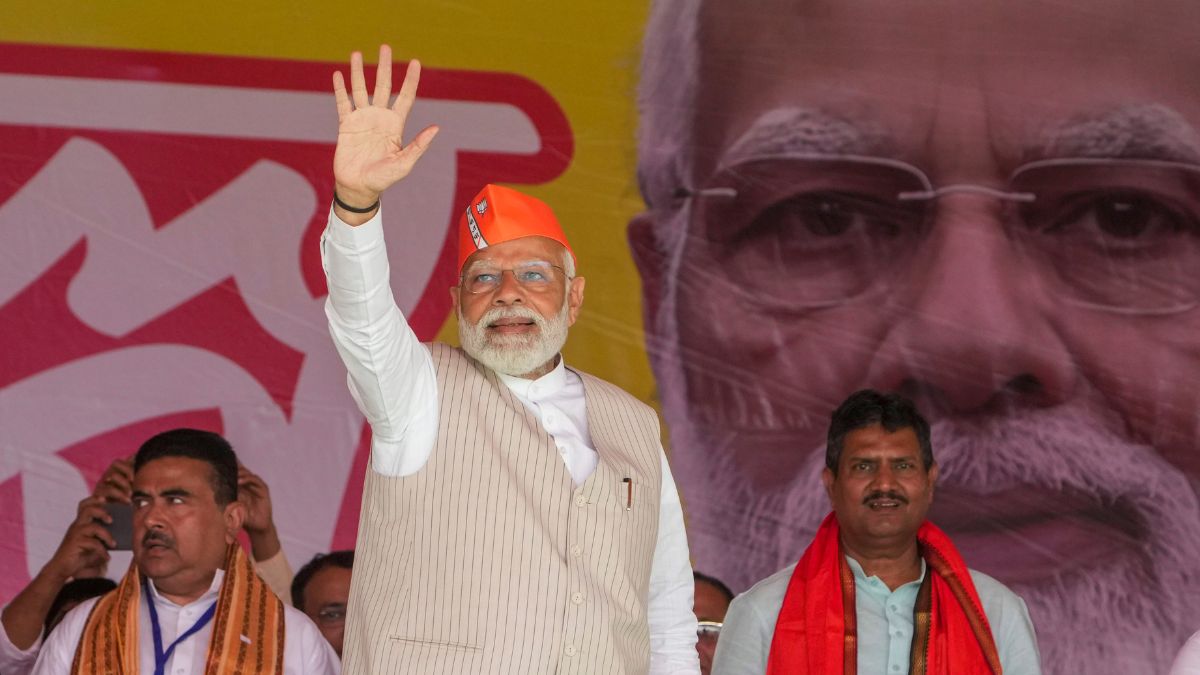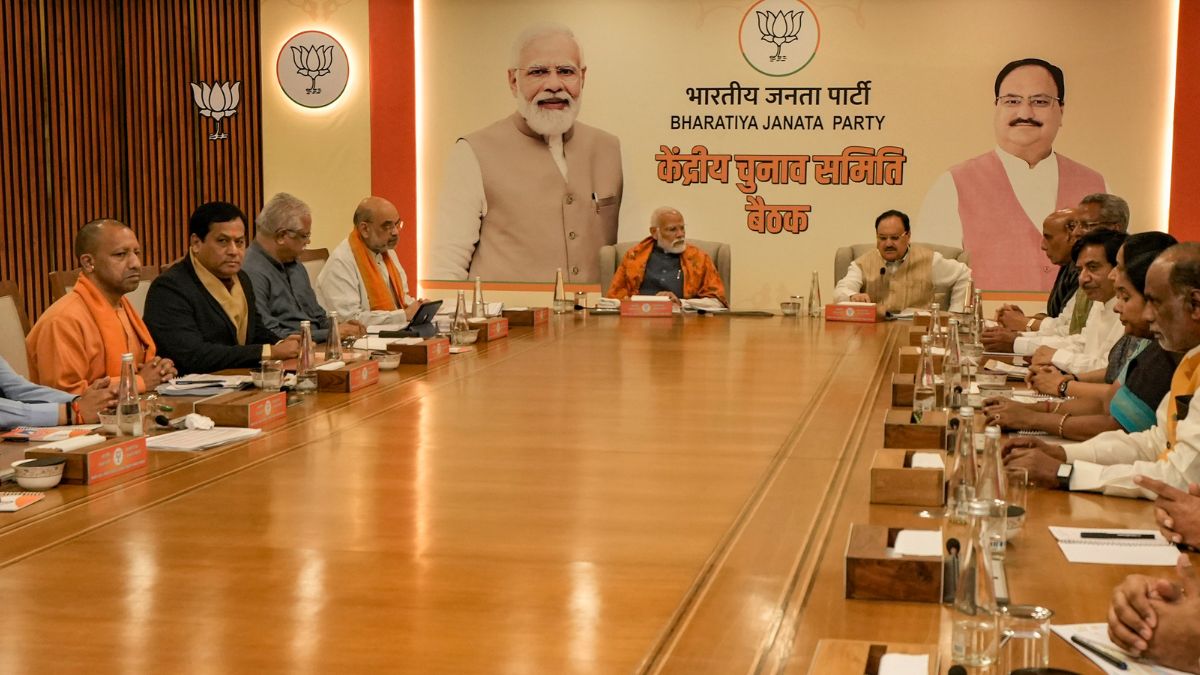Voters are not known to study past election statistics before making their choices. In other words, trends don’t influence voters. Rather it’s the voters who set the trends. Past trends, however, provide insights into voting behaviour even if, in the end, an election result may not fall into any previous patterns.
As Karnataka’s voters go to polls on Saturday, to choose their Assembly members, it’s worth pondering over how four past trends will play out:
- Karnataka has often gone against national trends with a tendency to elect one party in the Assembly election while choosing another for Lok Sabha – or backing a party in the state different from the one ruling at the Centre.
- No incumbent ruling party has returned to power in Karnataka since 1985.
- After Narendra Modi’s arrival on the national scene, BJP won several states where ruling parties fell to incumbency.
- In the post-Modi era, BJP tends to do better in multi-cornered contests.
Bucking the national trend
If Karnataka’s voters thumb their noses at the current national trend of BJP marching to victory in state after state, Congress will retain the state. But will it?
| Year of Karnataka assembly election | Result in state | National scene |
|---|---|---|
| 1985 | Ramakrishna Hegde of Janata Party won | Congress won the 1984 Lok Sabha poll under Rajiv Gandhi |
| 1989 | Congress returned to power | Congress lost power |
| 1994 | Janata Dal won state | Congress was in power under PM PV Narasimha Rao |
| 1999 | Congress returned to power | BJP-led NDA came to power with AB Vajpayee as PM |
| 2004 | BJP was the single largest party, Congress formed government | UPA-I formed the government |
| 2008 | BJP formed government | UPA-II won 2009 LS poll |
| 2013 | Congress returned to power | UPA popularity at lowest in 2013; Modi wave swept India in 2014 |
Anti-incumbency after 1985
After Ramakrishna Hegde won the Assembly election in 1985, a second successive victory after 1983, no incumbent ruling party has returned to power in Karnataka. Hegde went in for a mid-term Assembly poll in 1985 after his party lost most of the Lok Sabha seats in 1984.
Congress under Rajiv Gandhi was then riding on a sympathy wave following Indira Gandhi’s assassination. But Hegde, at the crest of his own wave of personal popularity, won his second Assembly election.
Chief Minister Siddaramaiah is either confident of going against this clear trend of anti-incumbency that has existed in the state for 33 years because of a host of his populist schemes or he is putting up a brave facade for the record.
But one thing is pretty clear: Congress is not as confident of winning a clear majority in the Assembly as it was some months ago.
The Modi juggernaut
Incumbent state governments have been falling like trees in a storm, not only in Karnataka but also across India in the post-Modi era.
Congress lost power to BJP in Maharashtra and Haryana in 2014, in Assam in 2016, and in Uttarakhand, Manipur, Himachal Pradesh in 2017 and to a front in which BJP is a part in Meghalaya this year. Both the Modi wave and anti-incumbency influenced these results, though their proportions can be a matter of debate.
Anti-incumbency also took its toll last year in Uttar Pradesh where Samajwadi Party was trounced by BJP and in Punjab where the BJP coalition was sent home by the Congress. Earlier this year, incumbent CPM ended up biting the dust in Tripura and handed over power to BJP.
If Siddaramaiah returns to power, his victory will defy not only the Modi wave but also anti-incumbency trends in Karnataka as well as India. His feat will be counted along with the victories of Trinamul Congress and AIADMK, which won second consecutive terms respectively in West Bengal and Tamil Nadu in 2016, and that of the BJP, which continued its reign in Gujarat after last year’s Assembly election.
Multi-cornered contests
Unlike in the pre-Modi era, the BJP tended to benefit from multi-cornered contests later, as in the case of Maharashtra, Haryana, Jharkhand, Assam, and most recently in Uttar Pradesh. Before Modi’s arrival on the national scene, the BJP had been luckier in straight fights with the Congress than in multi-party battles.
How this trend will play out in Karnataka’s triangular fight is still an imponderable, because each state has its own set of factors that tilt the balance. It’s also no secret that in Karnataka, BJP has put up weak candidates in constituencies where the Janata Dal (Secular) is strong. The party would prefer the JD(S) to Congress to win such seats. The question of which party will divide whose votes is often not easy to answer before polling. It could change from seat to seat.
CM versus PM?
If the 2015 successes of Arvind Kejriwal in Delhi and Nitish Kumar in Bihar are anything to go by, a CM-vs-PM contest might benefit the chief minister – probable only if local issues gain prominence. In Karnataka, Siddaramaiah turned the election into a fight between him and Modi. Though he harped on local issues and Kannada identity more in the months before the election, he made it more of a national battle towards the polling day. How voters would look at this in view of Modi’s popularity is something to watch.
Towards the end, Congress president Rahul Gandhi made it worse for his party by even turning the poll into a fight between a PM-probable and the prime minister after he thoughtlessly declared himself to be a candidate for the country’s top job. But, of course, Rahul has never been accused of being politically astute before.
Author tweets @sprasadindia


)




)
)
)
)
)
)
)
)